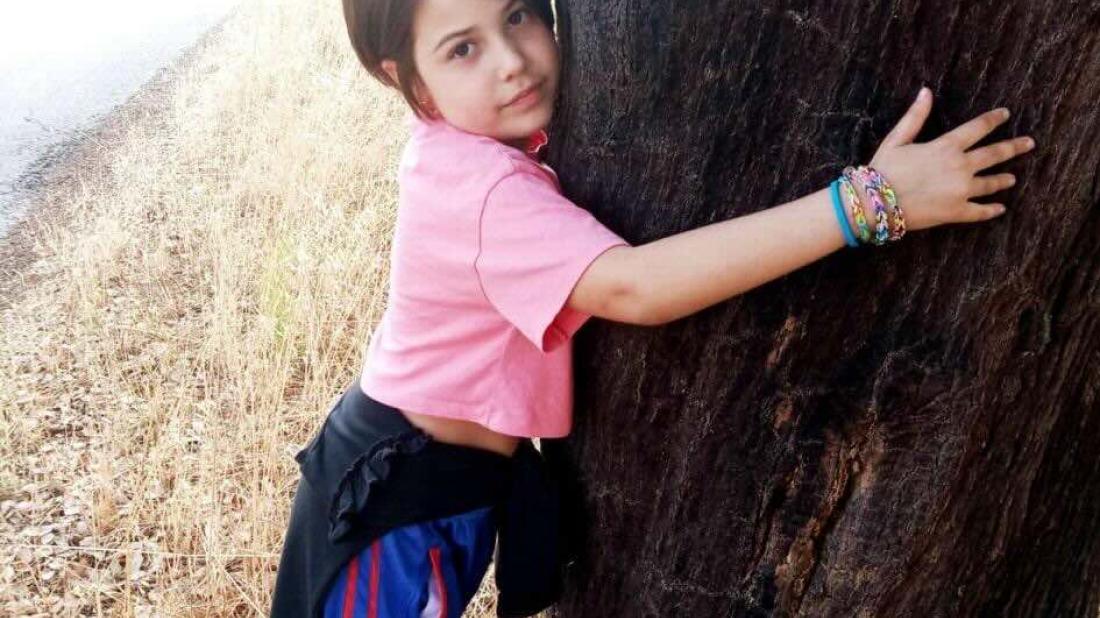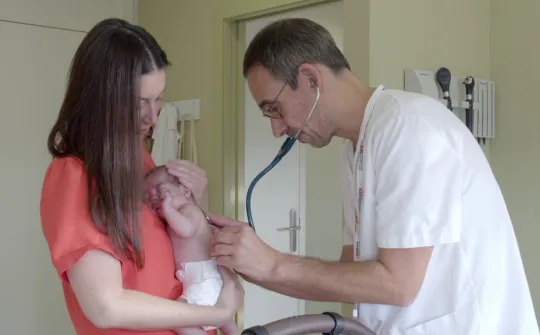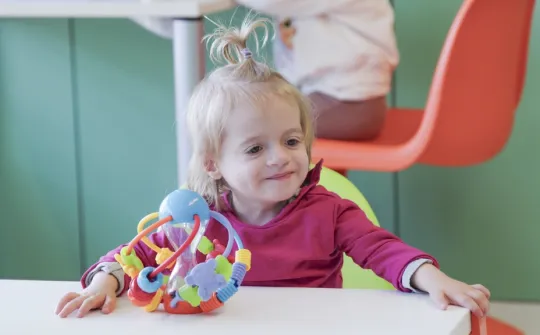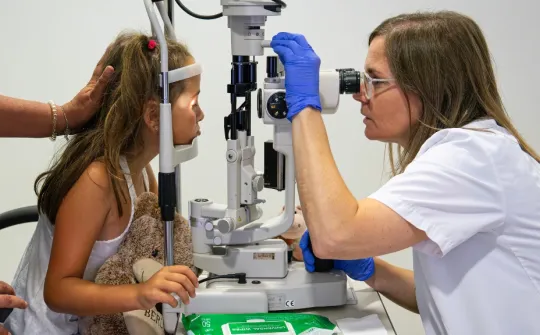
The story of Noa, a girl with a severe mitochondrial disease who has been able to recover lost abilities
Most rare diseases have no treatment. Noa's story opens the door to hope and reveals the need to push for research into these diseases, no matter how rare they may be.
This eight-year-old girl from San Sebastián has TK2 (thymidine kinase 2)-deficient mitochondrial myopathy. This is an ultra-rare disease that causes progressive muscle weakness that, if not treated early, will lead to the child's death due to respiratory failure before six to eight years of age.
The disease evolves very quickly and causes severe disabilities in just a few months. "Noa started having difficulties going up and downstairs when she was 22 months old," remembers her father, Lander. "Straight away my parents, who are doctors suspected that it could be something serious and we started seeing specialists. In a little less than four months, Noa stopped walking. She couldn't go five metres without help. We were very scared," he recounts. A short time later, she was diagnosed with the disease.
The child was treated in the Neurology Department of SJD Barcelona Children's Hospital, the centre that has treated the most patients with this disease in Spain. It was here that she started to receive treatment with nucleosides (monomeric molecules) developed by researches from Columbia University and the Vall d'Hebron Research Institute that had been found to be effective in animal models. "Unlike many rare diseases, in the case of TK2, we are now lucky enough to have a treatment that, although still experimental, has very good results because it does not just slow down the disease, it actually reverses the symptoms, and it does this without significant side effects," highlights Andrés Nascimento, the paediatric neurologist who treated Noa.
The patient's functional recovery was fast and lasting
Noa started receiving the medication in November of the same year, and in February she was walking again. "She went from only being able to walk a metre, to walking a kilometre. Over the first year, her improvement was spectacular," remembers Lander.
The little girl went on to recover her lost abilities and now lives a completely normal life. "She rides her scooter, plays basketball and swims. Thanks to this research my daughter was able to walk again. I think that if she had received the medication a couple of months later, it might have been too late because it is a devastating disease that progresses very quickly. And if this treatment had not existed, she surely would not be here or would be severely disabled. Fortunately, we were on time," reflects her father.
Neurologist Andrés Nascimento underlines that "quickly diagnosing this disease is crucial and in this case, it was possible thanks to the work of Dr Itxaso Martí of Donostia Hospital, who contacted us. We were able to guide her through the diagnostic process and activate a collaborative network with other professionals including, in particular, Dr Julio Montoya of the University of Zaragoza and Dr Ramón Martín of Vall d'Hebron Research Institute. This is an example of the collaboration that has enabled Spain to be a pioneer in the treatment of this really severe disease."
An international clinical trial was the answer for Noa.
Noa received treatment in compassionate use, a formula intended for patients with very severe and potentially fatal diseases for which there is no treatment on the market and who also cannot receive the treatment as part of a clinical trial because it is being studied with promising results but is still in the very early stages. Now, so that other children might be able to benefit from this treatment in the future and their safety is guaranteed, her family has agreed to take part in an international clinical trial alongside three other patients at SJD Barcelona Children's Hospital.
There are estimated to be more than 7,000 rare diseases. The professionals at SJD Barcelona Children's Hospital have experience in more than 1200 types of rare diseases. Three-quarters of these affect such a small number of people that they are recognised as ultra-rare, as in the case of Noa's TK2-deficient mitochondrial myopathy. To further knowledge of these diseases and drive their research. in 2015 the Hospital created the Paediatric Institute for Rare Diseases (IPER - Instituto Pediátrico de Enfermedades Raras)



